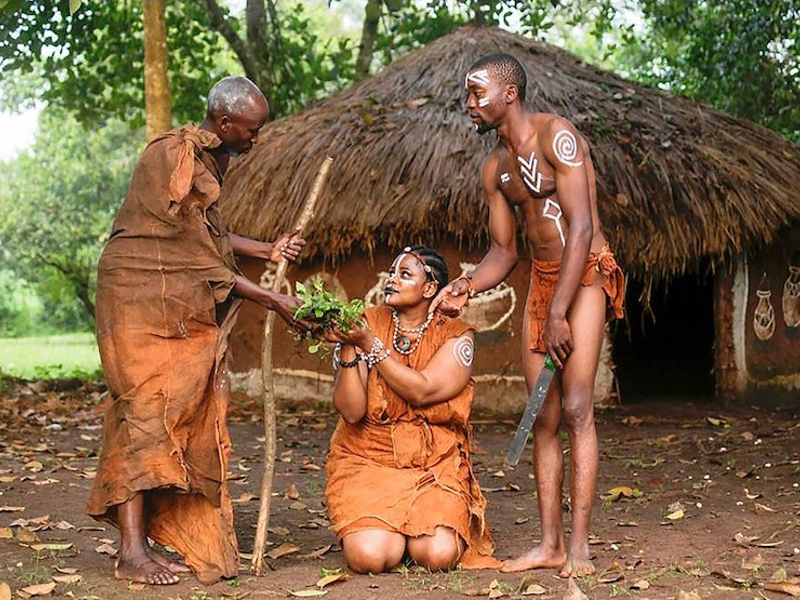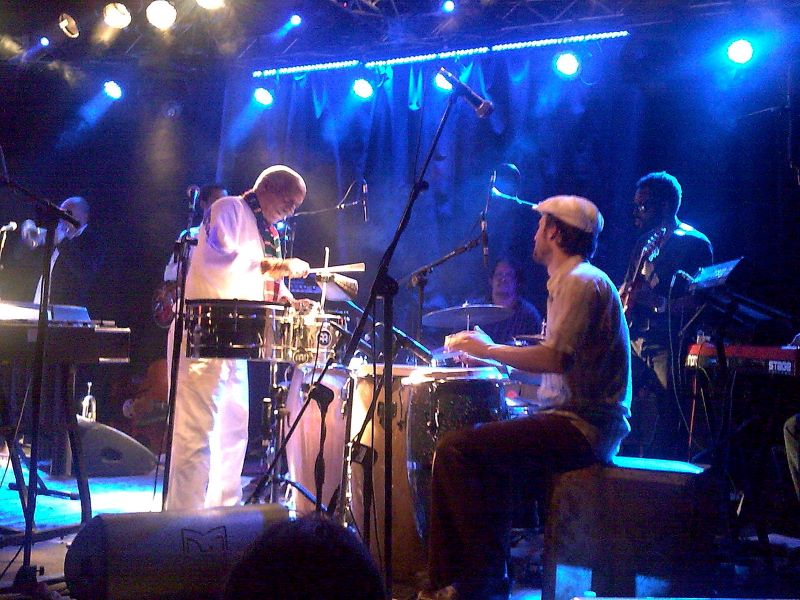Image Source: Wikimedia Commons
The African Diaspora is an intricate tapestry woven together by the threads of history, migration, and identity, spanning continents and cultures. For centuries, the dispersal of African people across the globe has given rise to a myriad of diverse traditions, among them the captivating realm of healing practices. These practices, deeply rooted in the shared experiences of resilience and adaptation, offer a profound glimpse into the cultural fabric of the diaspora. In this exploration, we embark on a journey to unveil the intricate tapestry of healing traditions within the African Diaspora—traditions that have not only endured the test of time but have also evolved to become potent tools for spiritual connection, physical restoration, and community solidarity.
Healing with Leaves –
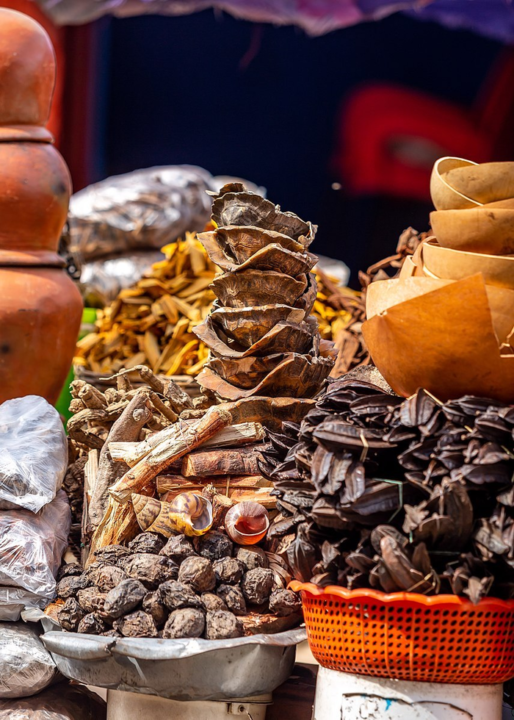
Dried herbs for traditional medicine in Accra, Ghana. Source: Wikimedia Commons
The use of leaves for healing traces its roots back to the heart of Africa, where ancient healers discovered the therapeutic properties of various plants. Ancestral medicine recognizes the intrinsic connection between humans and nature, believing plants hold powerful energy that can restore balance and well-being. Passed down through generations, this knowledge journeyed with Africans during the transatlantic slave trade, flourishing in the new lands they inhabited. Across the African diaspora, from the Caribbean to the Americas, African traditional medicine has left an indelible mark on healing practices. Herbalism, a fundamental aspect of conventional medicine, relies heavily on using leaves for their medicinal benefits. Healers, often referred to as “herbalists” or “leaf doctors,” possess an intimate understanding of the healing properties of various leaves and employ them to treat a wide range of ailments. From fever-reducing leaves to pain-relieving ones, each plant holds a unique potency and is carefully selected based on the patient’s needs. Herbal remedies often encompass physical health and emotional and spiritual well-being, reflecting the holistic nature of African healing traditions.
Aromatherapy –
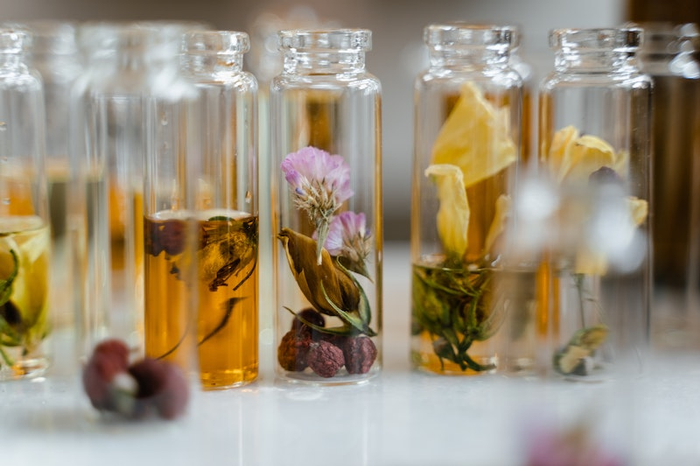
Photo by MART PRODUCTION
Aromatherapy, which originated in ancient Egypt and has since spread worldwide, finds a special place in the African diaspora’s healing practices. Aromatherapy facilitates emotional healing and relaxation by harnessing the essential oils in leaves. In African diaspora communities, aromatic leaves, such as eucalyptus, lavender, and peppermint, are used in various forms, such as infused oils, herbal baths, or aromatics, during rituals and ceremonies. The soothing scents of these leaves not only promote calmness and balance but also serve as reminders of the deep-rooted connection between humans and nature, reaffirming the ancestors’ wisdom.
Spiritual Cleansing –
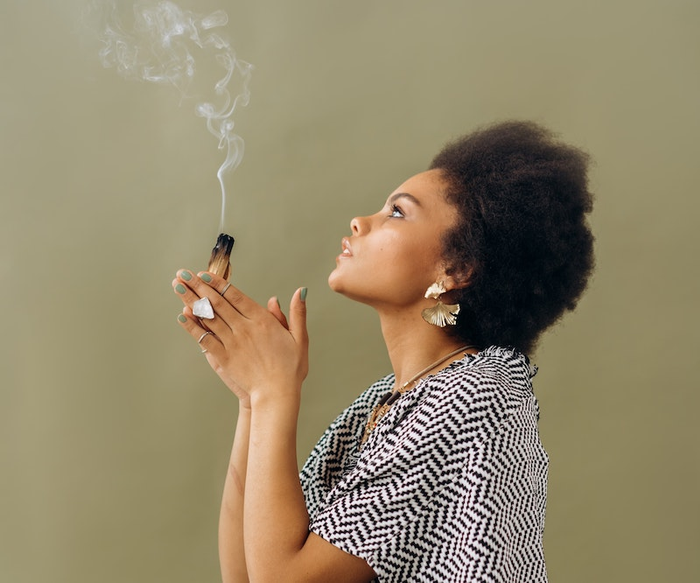
Photo by Mikhail Nilov
Spiritual cleansing is grounded in a holistic understanding of health that encompasses the body, mind, and spirit. Within the African diaspora, this approach recognizes the interconnectedness between these aspects and seeks to address physical ailments, emotional burdens, and negative energies. By engaging in spiritual cleansing, individuals embark on a path to alleviate stress, anxiety, and emotional blockages, ultimately paving the way for overall well-being. One of the most prevalent forms of spiritual cleansing within the African diaspora is through ritual baths. These baths, often infused with a combination of herbs, flowers, leaves, and other natural elements, are designed to cleanse the aura and energy field. Participants immerse themselves in the healing waters, allowing the botanical essences to envelop them in a cocoon of positive vibrations. Submerging oneself becomes a symbolic shedding of negativity, as the water absorbs and carries away the impurities that may have accumulated. Another impactful spiritual cleansing method involves burning herbs, such as sage, palo santo, or incense, to create aromatic smoke. This process, known as smudging, has been practiced across cultures within the African diaspora to purify individuals and spaces. As the smoke rises, it is believed to cleanse the energy, dispel negative entities, and invite positive energies to flow freely. Smudging transforms a physical act into a sacred ritual, deepening the connection to ancestral wisdom and the divine.
Holistic massage and bodywork –
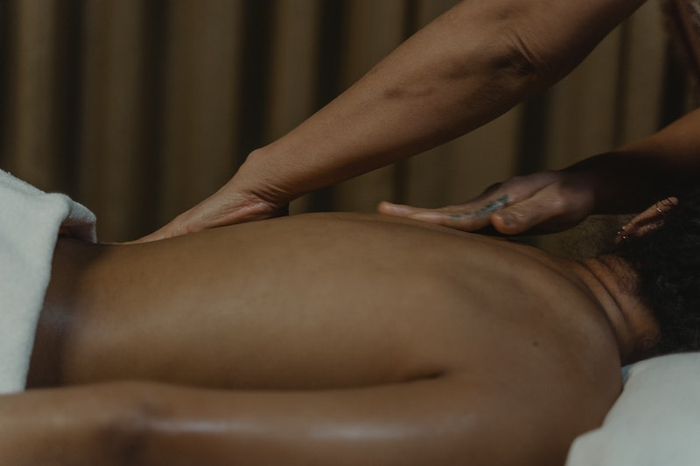
Photo by Tima Miroshnichenko
Holistic massage and bodywork are integral components of healing within the African diaspora, offering a comprehensive approach to nurturing the body, mind, and spirit. Rooted in ancestral wisdom and cultural traditions, these practices go beyond the physical manipulation of muscles and tissues, delving deep into the realms of energy, emotion, and spiritual connection. Embracing the philosophy of interconnectedness, holistic massage, and bodywork weave a tapestry of healing that resonates with the ancient teachings of the African diaspora. Drawing inspiration from the earth’s cycles, the rhythms of life, and the ancestors’ teachings, these practices recognize that the body is a vessel of energy, emotion, and consciousness. Through touch and intention, holistic massage and bodywork seek to restore balance and alignment within this intricate web of existence. Central to holistic massage and bodywork is the belief in the flow of vital life force, energy, or chi. Within the African diaspora, various cultural traditions understand this energy as Ashe (Yoruba), Prana (Hindu), or Orenda (Arawakan). Practitioners of holistic bodywork are attuned to the body’s energetic pathways and work to remove blockages, enhancing the circulation of energy throughout the physical and energetic bodies. Through skillful touch, they release stagnant energy, allowing for a revitalizing and harmonizing experience.
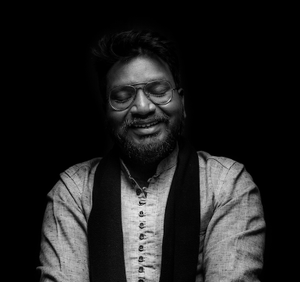
Anand Subramanian is a freelance photographer and content writer based out of Tamil Nadu, India. Having a background in Engineering always made him curious about life on the other side of the spectrum. He leapt forward towards the Photography life and never looked back. Specializing in Documentary and Portrait photography gave him an up-close and personal view into the complexities of human beings and those experiences helped him branch out from visual to words. Today he is mentoring passionate photographers and writing about the different dimensions of the art world.

